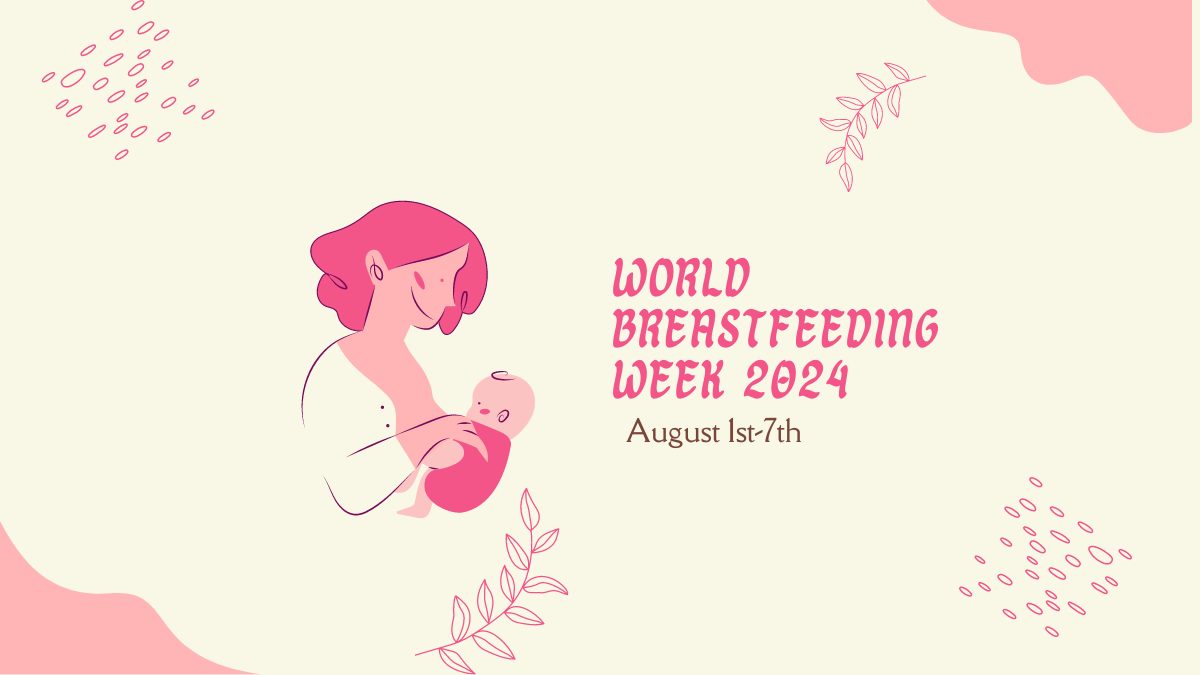World Breastfeeding Week is a global healthcare event celebrated annually from August 1st to 7th. This week-long observance brings together international and local organizations to promote the importance of breastfeeding for both newborns and mothers. The campaign not only highlights the benefits of breastfeeding but also advocates for and defends women’s rights to breastfeed their babies anytime and anywhere.
World Breastfeeding Week Theme for 2024
The theme for World Breastfeeding Week 2024 is “Closing the gap: Breastfeeding support for all.” This year’s focus is on celebrating the diversity of breastfeeding mothers throughout their breastfeeding journeys. The campaign aims to showcase how families, societies, communities, and health workers can support every breastfeeding mother, regardless of their circumstances.
The Importance of Breast Milk
Breast milk is crucial for an infant’s development, serving as the primary source of nutrition in the initial months of life. Its composition is perfectly suited for a baby’s needs, consisting of:
- 87% water
- 7% carbohydrate
- 4% lipid
- 1% protein, vitamins, and other minerals (including calcium, phosphorus, magnesium, potassium, and sodium)
Benefits of Breastfeeding
For Infants
Appropriate breastfeeding offers numerous benefits for children, including protection against various short-term and long-term diseases such as:
- Respiratory problems (e.g., respiratory distress syndrome, bronchopulmonary dysplasia)
- Sudden infant death syndrome (SIDS)
- Diarrhea and dehydration
- Necrotizing enterocolitis in premature babies
- Otitis media (middle ear infections)
- Obesity
- Type 1 Diabetes
For Mothers
Breastfeeding also provides significant health benefits for women, including a decreased risk of:
- Breast cancer
- Ovarian cancer
World Health Organization (WHO) and UNICEF Recommendations
The World Health Organization and UNICEF recommend optimal breastfeeding practices, which include:
- Exclusive breastfeeding for the first six months of life
- Continued breastfeeding up to two years of age or beyond
- Introduction of nutritionally adequate and safe complementary foods at six months
Global Impact of Breastfeeding
In developing nations, exclusive breastfeeding for children under two years old has the potential to save approximately 13% of all deaths in children under five years of age. According to the WHO’s 2020 report, optimal breastfeeding practices could save the lives of more than 820,000 children under five every year.
The Indian Context
India faces significant challenges related to infant mortality and malnutrition. As of 2015:
- India accounted for 20% of global child deaths under five years of age
- Malnutrition was responsible for over half of the nation’s under-five mortality
- The infant mortality rate was 38 per 1,000 live births
- Only 65% of infants were exclusively breastfed at six months of age
- Only 45% of infants received early initiation of breastfeeding (colostrum milk) within one hour of birth
Challenges to Optimal Breastfeeding
Several factors can affect successful breastfeeding practices:
- Family and community support
- Health system and services
- Sociocultural factors
- Mother-infant interaction
- Workplace and employment conditions
Workplace and Employment: A Major Challenge
One of the most significant barriers to optimal breastfeeding is the need for mothers to return to work. Many women worldwide spend a considerable amount of time away from their children at work within the first year after giving birth. This separation can make it difficult to maintain exclusive breastfeeding practices.
World Breastfeeding Week’s Role
World Breastfeeding Week aims to educate stakeholders and policymakers about the importance of creating breastfeeding-friendly workplace environments. By adapting breastfeeding policies, employers can promote optimal breastfeeding practices and support the healthy development of infants.
Global Workforce Challenges
Currently, more than 500 million working women worldwide lack access to essential maternity benefits. Many more face challenges upon returning to work. The World Health Organization recommends that every working woman should have access to:
- Paid maternity leave for at least 126 days (18 weeks), ideally longer than six months
- Paid lactation time to nurse their children
- Flexible return-to-work options
Indian Maternity Benefit Act, 1961
To support breastfeeding working women in India, the Maternity Benefit Act of 1961 provides:
- 26 weeks of paid maternity leave
- Mandatory creche facilities in establishments with 50 or more employees
- Permission for women to visit the creche up to four times daily until the child reaches 15 months of age
- 12 weeks of maternity benefits for women who adopt a child under three months or for commissioning mothers
History of World Breastfeeding Week
World Breastfeeding Week has been celebrated since 1990, following the Innocenti Declaration. Since 2016, the event has been aligned with the United Nations’ Sustainable Development Goals (SDGs). In 2018, a World Health Assembly resolution endorsed World Breastfeeding Week as a vital strategy for promoting breastfeeding globally.




 National Women's Day 2026 India: Signifi...
National Women's Day 2026 India: Signifi...
 World Radio Day 2026: Why Radio Still Ma...
World Radio Day 2026: Why Radio Still Ma...
 National Productivity Council Marks 68th...
National Productivity Council Marks 68th...








